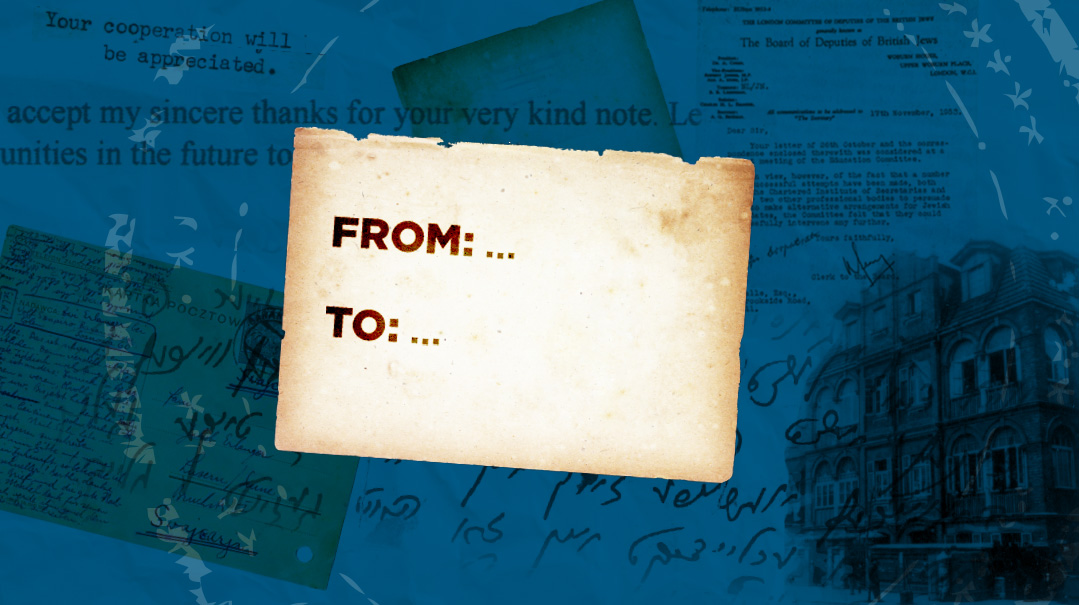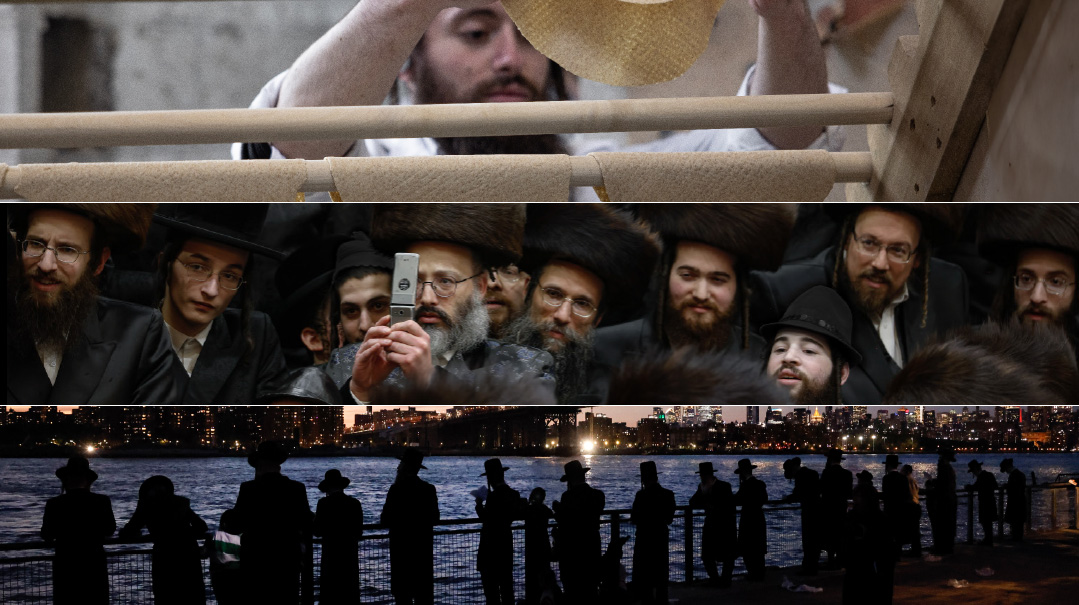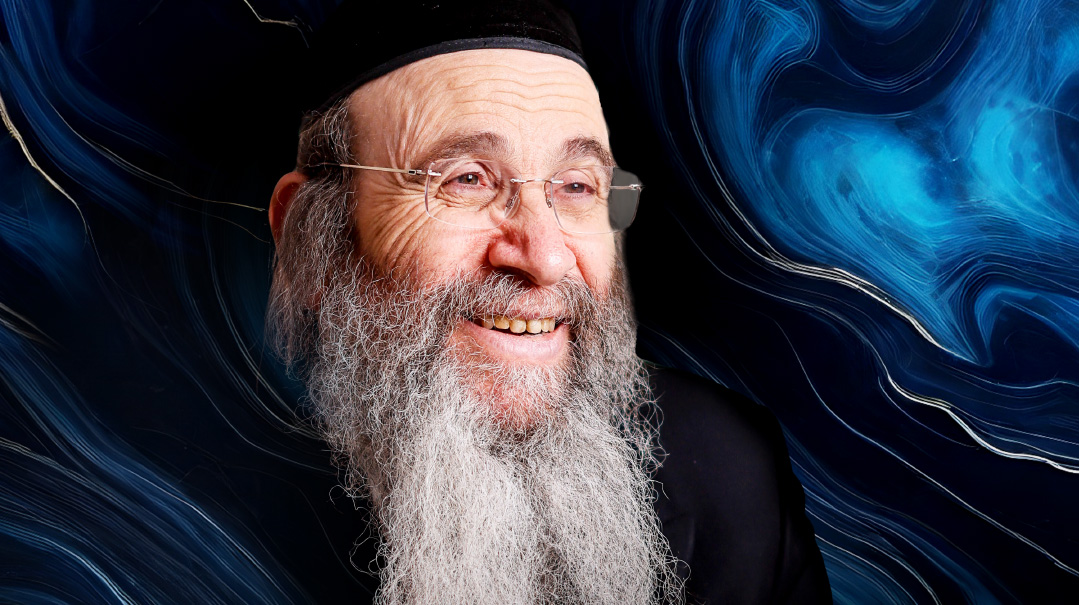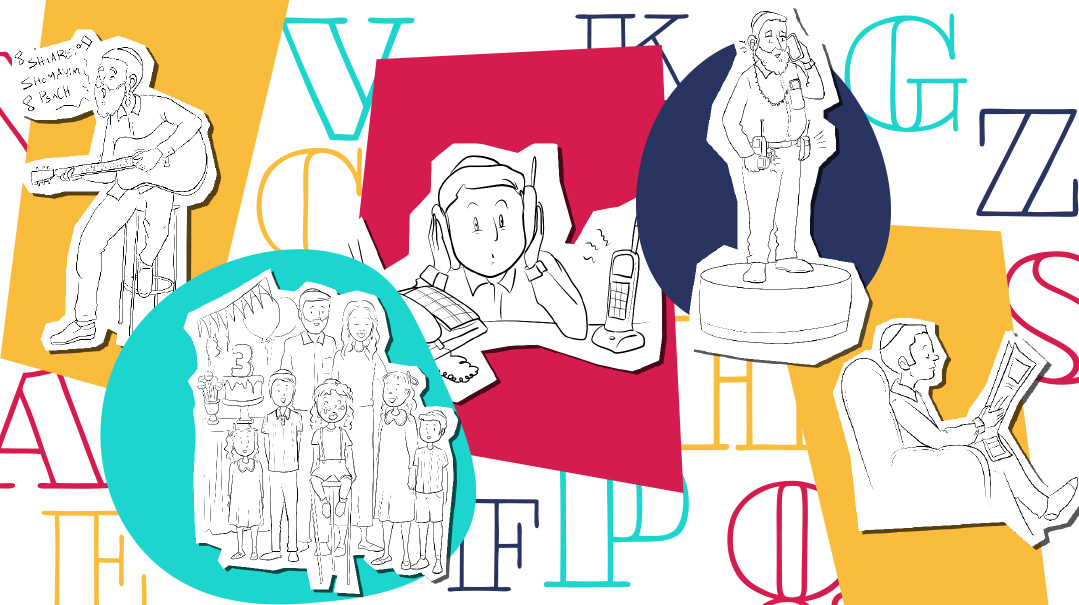Lasting Returns

Hershey Friedman's gift of giving nets Divine dividends
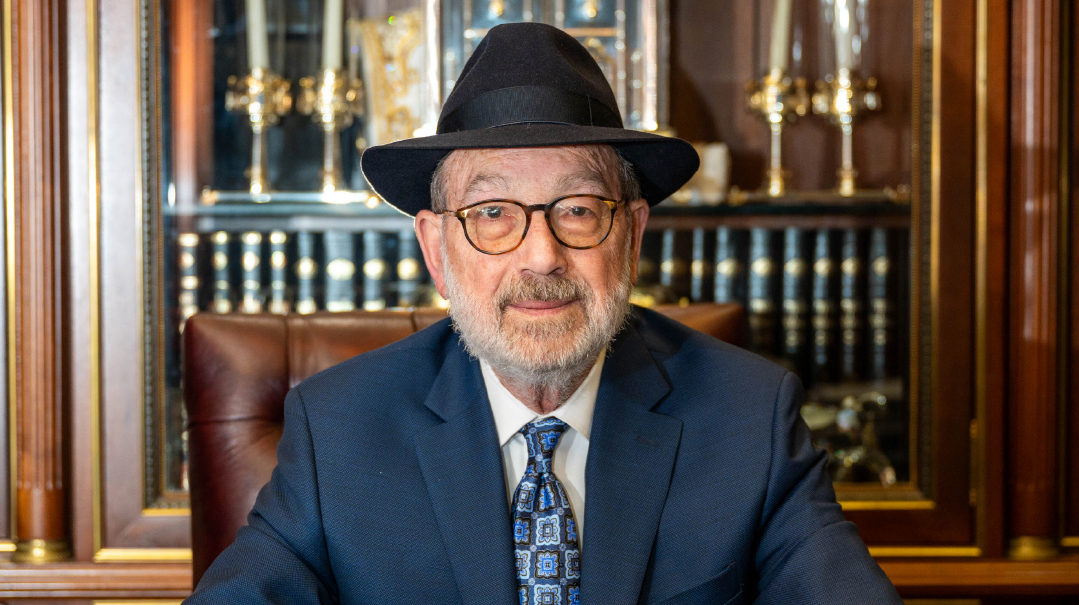
Photos: Moshy Friedman Photography
Blessed with tremendous wealth from the time he loaned his last dollar of savings to a struggling friend, Reb Hershey Friedman was already involved in a hundred mosdos, had funded buildings for yeshivos and sponsored a multi-million-dollar seforim publishing venture. Meatpacking wasn’t exactly on his agenda — so why did he step up to the plate nearly 15 years ago and agree to purchase the largest kosher meat plant in the US?
The year was 1980. The global economy was in a tailspin, and along with the rest of the business world, one young man in Montreal was struggling financially, his company about to sink. This fellow had a friend named Hershey, whom he knew to be kind and sympathetic, and so he turned to him for help. This was a desperate move, considering that Hershey himself had a total of $7,000 in his savings account and was fighting for his own struggling business to boot. But sure enough, Hershey got back to his friend with a check — for $7,000, a loan with no hard due date.
Over 40 years have passed since then, and the number of shuls, yeshivos, kollelim, and so many projects sporting the name “Friedman” are incalculable. The sheer dollar figures flowing from this philanthropic family boggle the mind. “Still,” says Reb Hershey Friedman today, “I believe it was all in the zechus of those $7,000.”
It’s a statement that really tells the whole story. His real estate projects dot the globe, and his plastics manufacturing company is one of the largest in North America. But all of that pales in comparison to the size of his heart. The millions shrink back in the face of the magnanimity — they look so small, almost as small as $7,000.
It will soon be 15 years since Hershey Friedman’s purchase of Agriprocessors, the prominent kosher meat producer raided in 2008 by government agencies. The company suffered a near-fatal blow in the process, and it looked as if the decades of meat production running in rural Postville, Iowa, and the community the Rubashkin family created around it would come to an end.
But just then, in stepped Hershey Friedman. He purchased the entire business, renamed it Agri Star, paid off the debts and, in short order, the production lines whirred back to life. In truth, he had no desire to get into the meat business — he was heading enough ventures — but he was asked to intervene, and so he stepped up to the plate. To some, it might have looked like just another foreclosure deal, a profitable opportunity for the seasoned and ambitious entrepreneur. But with such a widely diversified portfolio, the last thing on Hershey Friedman’s mind was meat production.
So why did he do it?
The answer predates the question by several decades; what began in 1980 continues until today. Forty-three years and more than $7,000 later, the story of Hershey Friedman continues to evolve and inspire.
T
here’s nothing unauthentic about Hershey Friedman. He follows no formatted style of expression, there are no clipped or distant mannerisms. He’s as forthright as an open book, chicken soup for the journalist’s soul.
“What do you need to interview me for?” he asks. “Just punch ‘Hershey Friedman Montreal’ into your browser, and you’ll get all the information you need.”
Maybe the raw facts, but nothing about a soul ignited by chesed. Like how in the last month, he’s put his large Israel-based real estate company, Azorim, at the disposal of the thousands of evacuees from the south, giving out fully-furnished apartments free of charge for as long as they need. Or how Agri Star quickly put together a huge shipment of shelf-stable products that were sent to soldiers on the front.
Both of Mr. Friedman’s parents were Holocaust survivors, his father, Reb Yisroel Dovid, hailing from Sighet, the base of pre-war Satmar chassidus, and his mother, Elsza, from a small Hungarian town named Botchka. They managed to procure visas to Canada and made Montreal their new home, where Hershey was born in 1950. Hershey, along with his two brothers, attended Montreal’s Satmar cheder.
Those years weren’t easy ones. Hershey’s parents ran a textile recycling company that earned a modest living, but tragedy struck when Mr. Friedman senior got into a terrible car accident, leaving him paralyzed; he was hospitalized for several years while Mrs. Friedman came forward and, with spirit and strength, took over her husband’s business. She was also determined that her youngest son would go out of town to learn in yeshivah, just as his two older brothers had, and so Hershey graduated Satmar cheder and went to learn in Baltimore’ Ner Yisroel and later, in Beis Shraga in Monsey.
When Hershey became of age, he joined her, taking the reins of the operations. But it was after the 1980 market downturn — and the loan to his desperate friend — that the strains of blessing began to show. Hershey had a keen sense for business (as a kid, he’d buy cheap stationery supplies and peddle them in school, and after yeshivah, he made extra cash by putting up vending machines at construction sites) and began to develop it further and then further yet. He eventually was approached by his biggest competitor — a much larger textile company — who wanted to buy him out in a very undervalued bid.
“I said no, and so they basically said that they’ll put me out of business,” Friedman remembers. “So the next day, I lowered my prices by ten percent, severely undercutting them.” The competitor came back and offered a far more reasonable price. Hershey continued to negotiate upward, eventually selling the company for a handsome profit. He bought a plastics manufacturing company with the profits, and that transaction eventually pivoted him into a position of enough affluence to afford making very significant investments in real estate and other projects.
H
ershey Friedman’s strong yeshivah experience would motivate his generous soul. At the bar mitzvah of his oldest son, he raised the shul bar by donating $18,000 at the Mi Shebeirach, announced by the gabbai who could barely contain his excitement.
As his resources grew, yeshivos all over became a favorite investment. Over the next few years, into the 1990s, the names of Hershey Friedman and his wife, Raisy, began to appear across the frum community — not just in the neighborhood, but in Satmar, Belz, Lubavitch and in the Jewish General Hospital.
On his own turf, Mr. Friedman offers a rundown of the various roshei yeshivah of Yeshiva Gedolah of Montreal, reflecting on who “we hired” after Rav Mottel was niftar and who “we hired” after Rav Yaakov Bistritz was niftar.
“Wait, who’s ‘we’?” I interject.
“I meant ‘I.’ ‘We’ means ‘I.’ But I don’t like saying ‘I.’”
“We,” as it turns out, serves as the chairman of the yeshivah’s board of directors.
But if charity begins at home, it continues far beyond. “He’s probably the chairman of the board of 40 other yeshivos,” says his son-in-law Yaakov Labowitz, an executive at Agri Star, who has joined us for this conversation, “and involved in 100 other mosdos. You’d fill up your entire article just with the names of the mosdos that my father-in-law is involved in.”
He may have many responsibilities — both business and communal — but Hershey Friedman’s sense of dedication is first and foremost to his dedicated and devoted wife, Mrs. Raisy (Stuhl) Friedman. “She is involved in all of the tzedakah endeavors,” says Mr. Friedman. “She oversees some of them entirely, writing out the checks herself.” In recognition of this partnership, every Friedman-donated edifice displays the name of both husband and wife (“The Hershey and Raisy Friedman building”).
Mr. Friedman mentioned how the Skverer Rebbe actually encouraged him to allow his name to be emblazoned on the outside of the buildings he sponsored, explaining that people need to be encouraged to give, and by Hershey and Raisy Friedman announcing their commitment, others would be inspired to emulate them.
But he had a question for the Rebbe: Isn’t there even greater value in matan b’seiser, giving in secret, where no one knows?
“I didn’t mean that you shouldn’t also be giving lots of tzedakah in private,” the Rebbe said.
Those institutions might be in Lakewood, Monsey, Brooklyn, or throughout Eretz Yisrael. And wherever they are, Mr. Friedman speaks lovingly of these yeshivos and of their leaders, considering his greatest acquisitions to be the relationships he and his family shares with them.
“I was blessed with a kesher to all the great gedolim in Eretz Yisrael,” he says, “although sadly, many have passed away over the last few years.” The list includes Rav Chaim Kanievsky, Rav Aharon Leib Steinman, Rav Shmuel Auerbach, Rav Michel Yehuda Lefkowitz, Rav Shmuel Vosner, and several others. The close bond the Friedman family has forged with gedolei Yisrael is an arcing theme throughout their entire approach to life; every step is taken with the advice and the blessing of at least one great tzaddik.
“The whole day, people share problems with them, but no one asks how they are. Listen,” Hershey once confided to a friend, “I’m not there to talk a Tosafos with them, so I ask how they feel, how their children are managing, stuff no one else asks them.”
One day, he even had coffee with Rav Steinman. “Nobody believes me, but I always knew that someone had photos of it, I just didn’t know who it was. A few months ago, a fellow showed up with the pictures, so now I have proof.”
When Rav Baruch Mordechai Ezrachi was sitting shivah for his rebbetzin last winter, Mr. Friedman was there. He came in and was seated next to the Rosh Yeshivah. Neither man spoke. Instead, Reb Hershey started to sob and the Rosh Yeshivah joined him, both men crying for several minutes.
His background is Satmar, yet he is perfectly comfortable with the Lithuanian greats. But it doesn’t stop there. “Ask my father-in-law who his closest rav in Eretz Yisrael is now,” Yaakov Labowitz prods me.
Mr. Friedman smiles. “Rav David Abuchatzeira,” he says proudly. “I go visit him just about every month. We’re like family.”
A relationship with a great tzaddik and mekubal can be valued for its spiritual effect and the bountiful brachah it can bring, but for Mr. Friedman, it has a pragmatic side as well. “I go to Rav David for all my questions in business and health,” he says. “I’ve learned to always listen to Rav Dovid, no matter how difficult it is to understand his often-cryptic advice.” It happened once that Mr. Friedman deviated from Rav Dovid’s advice, only to realize how uncannily accurate that advice had been.
“My doctors once insisted that I go through a certain medical procedure,” Mr. Friedman recounts. “I asked Rav Dovid and he said, ‘Don’t do it.’ But my doctors persisted — they said that not going through the procedure could have serious repercussions. And so, I did it. Following the procedure, the doctor told me, ‘You know, as we operated, we realized that you really didn’t need it.’”
One Shabbos, Mr. Friedman was walking to shul and he slipped, breaking his shoulder, arm, and wrist. He didn’t tell anyone about the accident but, somehow, the next day, he got a call from Rav David. “I heard you had an accident.”
Interestingly, it wasn’t the only call he got. Another gadol Mr. Friedman is close with is Rav Mordechai Gross, who serves as the gaavad of the Chanichei Hayeshivos community in Bnei Brak. “Rav Gross also called me, concerned about my accident.”
At one point, when Mr. Friedman was in need of a refuah sheleimah, Rav David recommended that, as a zechus, he should facilitate reprinting the seforim of his grandfather, the Abir Yaakov. This would be a huge project, as the original print of Abir Yaakov was replete with abbreviations, making it very difficult to comprehend. But Hershey Friedman took it on, sending it to a group of talmidei chachamim working for the Oz Vehadar publishing company (a company funded by the Friedmans) to make their way through the seforim and decode the cryptic references. One morning, about a year and a half later, Mr. Fredman woke up feeling fine, as if the condition he was suffering had simply disappeared. “Ten minutes later I get a call from Oz Vehadar. ‘We finished the Abir Yaakov,’ they told me.”
Hershey Friedman decided to sponsor Oz Vehadar because he had a vision about the seforim: He wanted them to be cutting edge, impeccably beautiful, with a readable, crystal-clear font.
“At the time,” he says, “Oz Vehadar was a small business, but I knew they were smart people who really understood seforim.” The Friedmans took Oz Vehadar under their wing, fostering it to become a leader in the seforim industry. “We began with Bavli, then we moved on to Yerushalmi. Then we did Mishnah Berurah, Mishnayos, Shulchan Aruch, and many others.” he says. The Talmud Bavli project cost over $20 million.
“We managed to come out with a set of Shulchan Aruch that consisted of only 16 volumes. People asked me how we did it. I told them,” Mr. Friedman smiles jokingly, “we got rid of half the chumras.’”
Oz Vehadar is now a massive operation, employing 550 avreichim in Eretz Yisrael, led by Rav Yehoshua Leifer, who, in Mr. Friedman’s words, “is a genius.”
“My father-in-law will always make sure that any project he undertakes produces the highest quality possible,” says Yaakov Labowitz. “Whether it’s a sefer, a company, a yeshivah, or a piece of meat, once he intervenes, he will ensure that it’s top of the line.”
To this end, Mr. Friedman is directly involved in the aesthetic details of the seforim, including the color of the cover and the quality of the paper. Other than Oz Vehadar, the Friedmans also finance Machon Mishnas Rav Aharon, a Lakewood-based foundation that began with publishing the works of Rav Aharon Kotler and his son, Rav Shneur, and has since moved on to reprint and publish many old seforim, either from the original manuscripts or from ancient prints. The seforim of Rav Shlomo Zalman Auerbach are also published through the Friedmans’ generosity.
It’s a common misconception that Oz Vehadar is a business from which the Friedmans profit. The reality is that the only ones making a profit are the avreichim who receive stipends through the Friedmans’ generosity.
Mr. Friedman says his decision to back Oz Vehadar Mahaduras Friedman Gemara is one of his most rewarding investments. Look around any beis medrash, and you’ll marvel at how with money, the most mundane form of currency, one can purchase eternity. The Shulchan Aruch project was next, then so many other seforim paying tribute to the four Yidden memorized again and again, across the world: Reb Yisroel Dovid ben Pinchas Eliezer and Esther bas Reb Yehuda Aryeh Friedman, and Reb Dovid Tzvi ben Reb Pinchas and Chaya Malka bas Reb Menachem Mendel Stuhl, Hershey’s parents and in-laws.
H
ershey Friedman was happy to be making his contribution to yeshivos and seforim publishing. Meatpacking wasn’t exactly on his agenda — until the 2008 closure of Agriprocessors left a thriving business in legal and financial disarray. Its fate as a relic of history consumed by a giant bankruptcy trust seemed all but sealed. But then the phone rang in the Friedman’s Montreal home. On the other line was Rav Yaakov Horowitz, rosh yeshivah of Yeshivas Bais Meir, and he had a straightforward request. “Would you be willing to buy Agriprocessors?”
The only reason in the world that Mr. Friedman would consent is because of his prevailing middah of emunas chachamim. “From a business perspective,” he admits, “it made no sense, but the Rosh Yeshivah asked me to do it, so I listened.” It was also a chesed for the klal, because as much as the Postville kehillah was seriously affected, the national kosher consumer was even more so, as meat prices shot up. After the acquisition, prices that had practically doubled came back down.
Agriprocessors — which was renamed Agri Star — was now in the possession of the Friedman family.
“It took a long time to get things going,” Mr. Friedman reflects. “The company had been shut down. We had to get everything up and running again.”
But for Hershey Friedman, there’s no such thing as half-hearted. What happened over the course of the next 15 years was a massive effort to set revolutionary standards in kashrus, professionalism, and business culture.
“At our facility, we do shechitah munachas,” Mr. Friedman says, now comfortable with the ins and outs of the kosher slaughter business. Shechitah munachas refers to the ideal method of shechitah, where the animal is inverted so that the shochet slaughters downward rather than upward. This allows for the shochet to apply significantly more pressure, making the shechitah swifter and more effective.
But arranging for a proper shechitah munachas is complex. Federal regulations do not allow for physically turning an animal onto its back and slaughtering it in that position — this in addition to a serious issue of tzaar baalei chayim. In order to perform shechitah munachas in a way that avoids any halachic or legal restrictions, Agri installed specially designed “shechitah rotating boxes.” The animal enters the box, which snugs tightly around its body. Then, rapidly, the box revolves, and the animal is turned upside down before it has time to notice. The shechitah is then immediately performed, allowing for a proper shechitah munachas without any issue of tzaar baalei chaim.
The fact that Agri Star is a Jewish-owned, kosher facility allows for numerous advantages in terms of efficacy in kashrus. One example of this is the soaking and salting process. Since all blood must be removed from the meat, every animal needs to be salted and then washed for specific amounts of time. A kosher run in a non-kosher facility faces the challenge of not having built-in infrastructure to allow for these processes to run systematically, which means that separate tubs of water and repositories of salt must be brought in. “But in Agri Star,” says Yaakov, “the production line leads the meat directly through the process and is automatically set to run for the required amount of time.”
The sheer volumes moving through the doors of Agri are staggering, with an annual estimated 5,000,000 pounds of salt, 72,000,000 pounds of beef, 62,000,000 pounds of poultry, 10,000,000 pounds of chicken feed, and 125,000,000 gallons of water.
The advantage of an all-kosher facility plays itself out on a constant basis when it comes to separating out the non-kosher parts of the animal. In Agri Star, little effort has to be made in separating the two from each other; there are two completely different sections set up, one for the kosher parts and one for the non-kosher.
The high standard of the Agri facility is recognized by leading — and diverse — kashrus organizations; the OU, Rav Weissmandl, Satmar, and Lubavitch all provide certification for Agri products. In fact, the Satmar Rebbe, Reb Aharon Teitelbaum, upon visiting Agri and learning about all of its unique features, declared that it be the home for all shechitah under Satmar supervision.
Aside from the kashrus component, the Friedmans take pride in the efforts they’ve taken in ensuring the highest quality meat. “Black angus taken from the Midwest is known to be the best quality meat,” says Mr. Friedman, “so that’s what we use.”
In fact, all the company’s beef and poultry is sourced from the Midwest, the best area for raising livestock due to the cool climate and abundant corn and soy available for feed. The company deals directly with the local family-owned ranches and barns as opposed to commercial feedlot cattle.
A necessary step in poultry production includes “cooling” the poultry which is usually done via water. In seeking to minimize the amount of water absorbed by the chickens, the company implemented “European air chill” technology that cools the chicken with an advanced air-cooling system; this results in less water in the finished product and helps to inhibit bacteria growth, allowing for longer shelf life.
But the Friedmans recognize that a product’s quality can only be as good as its producers, and that means ensuring quality of life for the shochtim and mashgichim. As Postville is located in rural Iowa, not anywhere near a sizable frum community, many accommodations had to be arranged for the company’s frum employees, and a thriving frum community continues to flourish in the very non-Jewish state. The Rubashkins founded this community, and the Friedmans stepped forward to breathe new life into it after the near collapse, financing many upgrades and funding the schools.
The Postville community has two shuls, one Chabad and the other a chassidishe shtibel. There is a girls’ school, a boys’ school, a Chabad yeshivah, a mikveh, and a small grocery store which receives its wares via a weekly truck from Chicago and other larger communities. The lifestyle is relaxed, shielded from many of the influences that typically pervade more urban locales.
The ability to live in a peaceful, close-knit community in close proximity to their workplace significantly enhances the performance of shochtim and mashgichim. Food plants are frequently located at quite a distance from frum communities, thereby keeping kashrus supervisors in constant transit. The Postville community eliminates this problem by allowing for work and home to be within a few minutes of each other.
“We’re very happy here,” says Reb Moshe Yehoshua Grunwald, a New York native and shochet for Agri Star. “I never would have thought that such a place exists. We have Satmar, Toldos Aharon, Chabad… and absolute harmony.”
The 15 years since the transaction’s closing haven’t been easy ones, though. “We took over a company in bankruptcy,” says Yaakov. “Many of the employees had left. My father-in-law is an experienced and very intelligent businessman, but meat production is completely different from any other business he had ever been involved in. We had to learn about kashrus, government oversight, and so many other aspects that don’t exist in any other line of business.”
While Hershey Friedman’s decision had little to do with finances and mostly to do with heeding the call of the hour, he sees a deeper mission as well — an ideal that pervades all his endeavors.
“We want to give Klal Yisrael the best quality meat with the highest standards in kashrus. We want to give them the most comfortable batei medrash. And we want them to be able to learn from the most beautiful seforim.”
Those seven thousand dollars back in the 80s may have been a small sum in retrospect, but its returns continue until today.
DIVINE DIVIDENDS
By Yisroel Besser
Business analysts have speculated on how it is that Hershey Friedman has a remarkable instinct for picking winners, for taking companies that seem to be in freefall, then stabilizing them and turning them around.
I have no questions, though. Because I know that he doesn’t need refrigerator magnets to teach about perseverance, hard work, and determination. His life has done that.
Like most of the men in the shul in which I grew up — Tefilla L’Moshe d’Dzibo — Reb Yisroel Dovid Friedman survived horrors, found strength to rebuild in a new country, and hoped to enjoy some peace and well-deserved nachas.
It wasn’t to be. In 1960, just as his textile business started to succeed, he endured a terrible car accident and was confined to a wheelchair for the rest of his life.
By the age of 18, Hershey – who had been learning in yeshivah in Baltimore and Monsey, felt that his place was back home helping his mother — to whom English was a third language and French a fourth — and so he returned, in order to be at his mother’s side helping to keep his father’s business afloat.
The office was the easy part.
I remember him pushing the wheelchair up the stairs into shul. There were no organizations that offered medical equipment, no one who came to the house to play music or make supper, and most people didn’t even know words like “trauma.”
As a child in Dzibo, I’d get a candy from the candy man, Reb Shmiel Perl. One time Hershey asked me if he could see the candy, and I wondered why he was checking the hechsher if my father had already told me that Reb Shmiel could be trusted.
“I made this,” Hershey said. I didn’t know that he made candy. No, he explained, he made the wrapper.
I was about eight years old and didn’t know then that he had sold his parents’ business at a profit and bought a plastics business owned by an older man looking to retire, turning it around and seeing it become a huge catalyst for blessing. (When the Montreal Expos baseball team started to flounder and lose money, owner after owner trying and failing to make it worth the effort, we came to Reb Hershey in shul and petitioned him to buy it, certain that he could and would.)
I remember when the tzedakah started to flow beyond Montreal, and the Friedmans were honored by Beth Medrash Govoha in Lakewood. The Dzibo dayan, Rav Yechiel Meir Katz, spoke at that prestigious dinner.
His father, the old Dzibo dayan, had passed away, as had Reb Yisroel Dovid Friedman. Their sons were honoring an old bond.
When I was a bochur in the Mir, word spread that the yeshivah had purchased a new building — this was before Rav Nosson Tzvi would expand into Beis Yisroel. Not only was the concept novel, there were very few American balabatim giving that sort of money to the Mir back then — but once again, Hershey was ahead of the curve.
On Chanukah of 1997, a groundbreaking ceremony was held for “Binyan Friedman.” Mr. and Mrs. Friedman made sure that all the Montreal bochurim were invited to the event, and we enjoyed our VIP status. At the dinner, there was a guest speaker.
The Dzibo dayan had come from Montreal.
The crowd was wowed by the oratorical abilities of the chassidishe rav, but those who knew the whole story appreciated the significance: The Dzibo dayan knew the mountains that his friend had climbed.
I once flew to Eretz Yisrael with him (on the same aircraft, not the same section of the plane), and he told me he was headed to Nahariya to speak with Rav David Abuchatzeira, inviting me to join. We were welcomed in the Rav’s own apartment, a unique honor. His love for Reb Hershey was obvious, and Rav David told me about the zechusim of the Canadian visitor — Hershey picking a winner when Rav David asked him to undertake the reprinting of the Abir Yaakov.
In my own travels, I have often met leading politicians or dignitaries, and when learning that I come from Montreal, they ask “Do you know Hershey Friedman?”
I laugh (inwardly), thinking that the Hershey Friedman — whose name they utter with reverence — will sit at any table at a simchah, with no airs or self-importance, and whose ideal of oneg Yom Tov is being home, eating his wife’s home-cooked food, with children and eineklach around the table.
I have been in the Friedman home many times for individuals and causes that don’t come with dinners, plaques, or even receipts. When in town, Mr. Friedman answers the door and phone himself, and he and his wife greet each visitor pleasantly, as if they are so happy you dropped in.
A son, Chazal teach, is the leg of his father.
Reb Yisroel Dovid Friedman’s legs did not work, yet his youngest son stood devotedly behind him, pushing, pulling, lifting, and reassuring. But the man who could not walk has not stopped moving — still propelled every day by the zechuyos of his son. Hershey is still pushing.
(Originally featured in Mishpacha, Issue 985)
Oops! We could not locate your form.



